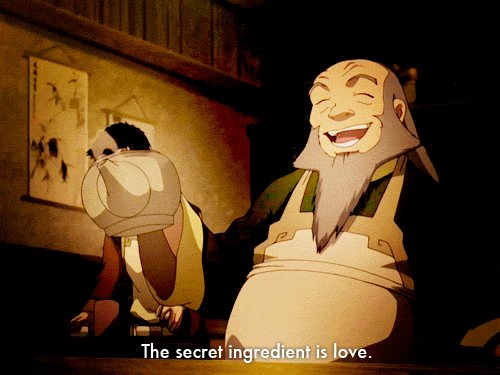#webofstories
Text

The Tangled Web by Cheryl Corriveau
To tell you the truth, what prompted this article was reading The Tangled Web by Cheryl Corriveau. Of course, it’s not because it has the thriller-est plot out there, nor does it have the spiciest scenes out there. Regardless, it was the last building block in a tower of anticipation since I first read Ian Fleming’s works…
Read more! https://www.cherylcorriveau.com/book/
0 notes
Text
A Web of Stories Part 0.5: A Word on Epigraphs
First of all, I apologize for my long absence. School does not leave me much time to write or to read, outside of what I do in class. Now that summer has started I will hopefully have some time to do some reading of Ghostwritten. It’s a hell of a lot better than the drivel that is Maria Doria Russell’s The Sparrow which I am currently halfway through. However, I haven’t dedicated the time quite yet to give that sonufabitch Neil Brose the attention he deserves. So I’m going to talk a little bit about epigraphs, more specifically about Ghostwritten’s epigraph and how it is a dead giveaway of the theme/Central Narrative Thread(CNT)/etc….
I’ve only personally seen epigraphs in books that are attempting to be literary. Maybe that’s literary snobbery, after all some books that claim to be “literary” are little more than the author preaching through flimsily constructed mouthpieces (I’m looking at you Atlas Shrugged). However, despite their various flaws I think literary books do all attempt to engage with a larger set of ideas. Which is, to quote GRRM out of context “is their great glory and their great tragedy.” All literary books, without strong enough characters or plot, run the risk of turning out like Atlas Shrugged.
Epigraphs are a way to begin this discourse by citing and suggesting an expansion or a response to the ideas put forth in previous work. Citing your sources, as you will. Epigraphs suggest that the author has done their due diligence and read widely. Usually the book is better for it (guess which book does not have an epigraph :) ). Oftentimes however, the epigraph kind of gives away the chase: it can make the point of the book VERY apparent, although perhaps I am speaking with reread bias. Let’s take a look at a couple examples and then I’ll dive in to what I think Ghostwritten’s epigraph is all about.
The celestial spheres endlessly resound.
But an instant is invincible in memory.
It comes back in the middle of the night. Who are those holding torches
So that what is long past occurs in full light
-Czesław Miłosz

This is an epigraph from Guy Gavriel Kay’s newest book A Brightness Long Ago. The text of the epigraph itself is from a Czesław Miłosz poem called “The Master”. The poem is about an old musician/composer remembering some sinful event from his past, and remarking on how clear it seems and how he is glad he remembers in it. In A Brightness Long Ago, the main character Danino is also stuck in the mists of the past. He is old, serving on the council in Seressa (analog of Venice) as an important noble, but it is this event from his youth, the meeting of two mercenary leaders who engage in a struggle that ends up being pointless, is the thing he remembers. This epigraph tells us that it is this act of memory that we should be focusing on: the how he remembers and the why, not the what.
TRIPITAKA: Monkey, how far is it to the Western Heaven, the abode of Buddha?
WU-KONG: You can walk from the time of your youth till the time you grow old, and after that, till you become young again; and even after going through such a cycle a thousand times, you may still find it difficult to reach the place where you want to go. But when you perceive, by the resoluteness of your will, the Buddha-nature in all things, and when every one of your thoughts goes back to that fountain in your memory, that will be the time you arrive at Spirit Mountain.
-The Journey to the West

This is an epigraph from Kim Stanley Robinson’s The Years of Rice and Salt. The Epigraph is from the 16th century Ming Chinese novel The Journey to the West. The former tells the tale of an alternate history in which the black plague wiped out the entire population of Europe. The latter is a Chinese folktale chronicling the seeking of enlightenment by pilgrims traveling the Western regions of China (i.e. India and Central Asia). Robinson’s novel focuses on two things: a world and a group of reincarnating individuals, both of which seek to come to some kind of balance. In the Bardo, a limbo-like state between incarnations, the characters find themselves and the world in a state of anarchy. China is first too powerful and then the Arab states and so on and so forth. The reincarnated characters, each delineated by the starting letter of their name, also swing back and forth on the pendulum. From coward to scientist, from hero to murderer. It is only in the chapter entitled “Window Kang”, in which the title character reflects on the best years of her life being those of “rice and salt”, i.e. the ordinary, hectic child-filled years of her life, in which enlightenment begins to be achieved.
...And I, who claim to know so much more, isn’t it possible that even I have missed the very spring within the spring?
“Some say that we shall never know, and that to the gods we are like the flies that the boys kill on a summer's day, and some say, to the contrary, that the very sparrows do not lose a feather that has not been brushed away by the finger of God.”
-Thorton Wilder, The Bridge of San Luis Rey
And now finally Ghostwritten. I have not read The Bridge of San Luis Rey (it’s on my reading list I swear), but the central event of the novel is a bridge collapsing in Lima, Peru which kills seven people. Brother Juniper, a local monk, takes it upon himself to find out these people are and perhaps see the workings of the hand of God in their deaths. I have not read the book, so I do not know the intricacies of the ending, but the Abbess of the monastery: "There is a land of the living and a land of the dead and the bridge is love, the only survival, the only meaning."

Ghostwritten also focuses on the question of the existence of the hand of God. In some ways Mitchell comes to the same conclusion as Wilder. So many of the characters make the decisions they make because they love. Yet like all effective authors, Mitchell goes beyond merely affirming the ideas espoused by the epigraph. First of all there are the non-corporeals, an invisible force that influences our decisions in inexplicable ways. Then, more importantly, the CNT is a train hurtling towards the creation of the super intelligent AI Zookeeper and the destruction of the human race by a comet. In Ghostwritten we are shown many gods: some that view human beings as mere distractions to their larger purpose (chance, the noncorporia), others that make it their work to know all the workings of the human soul (Zookeeper and the author). Perhaps it is not one or the other, as brother Juniper suggests, but both.

Why is this helpful? Hopefully you’ve already picked up on some reasons. This epigraph gives a better idea of theme (looking for the hand of god) and gives the seemingly unrelated narrative threads a clear direction (we are hurtling towards the creation of a force that can we can tangibly prove will affect our lives). This realization, combined with the long fiction writing class I took during the spring semester, has convinced me that I need to switch directions slightly on this blog. I need to move away from the discussion of complex vague thematics and towards something more tangible like story structure. I will be replacing my three thematic sections with two core pillars of discussion:
“Spring Within a Spring” which will focus on the central narrative thread, the narrative arc of each chapter and other storytelling techniques.
“Hand of God”, which I will focus more on thematics, specifically on love, chance, authorial choice, noncorporia.
The other sections will remain the same.
See you soon (hopefully) in Hong Kong.
Ser Jacob De Zoet
#epigraph#ghostwritten#reread#david mitchell#god#handofgod#Thorton Wilder#kim stanley robinson#love#chance#writing#webofstories
7 notes
·
View notes
Text
Added to list of YouTube channels etc.:
https://www.youtube.com/user/webofstories/videos
https://www.youtube.com/user/soultorment27/videos
0 notes
Text
A Web of Stories Part 3, A Sonata for Murakami

Spring was late, and so was I.
Synopsis: A young Tokyo record store clerk falls in love in a chance encounter
The beautiful thing about Ghostwritten is that you can read every chapter as a short story. And honestly, not much of the meaning of each episode is lost thinking about the book in this way. But together they become some giant version of Haruki Murakami’s “Chance Traveller”, with events in one story triggering vital events in the next. These character’s lives are literally being ghostwritten by one another.
And in this section, Mitchell proves that he too can ghostwrite. This reads almost exactly like a Murakami short story. The constant references to jazz music. The Bildungsroman of the narrator, Satoru. The sheer Japaneseness of the writing. And while Mitchell will go on to develop this style into a full novel in number9dream, inserting a love letter to his favorite author is not a reason enough for this to be here. I think I have some ideas
The Human World is Made of Stories
If the Okinawa section is a story about a man struggling to define his hatred, this a story about a man struggling to define love and belonging. In Japan, these two seemingly contrasting ideas are fundamentally intertwined. The mild disgust that even Satoru shows to westerners interweaves with his generation’s use of American culture as a weapon against their parents. Takeshi’s lust for women and his hatred for his own philandering ways can’t seem to escape from one another. Satoru himself cannot reconcile the comfort of “his place” with the need to leave it to be with Tomoyo. Fear of the foreign. Love of the foreign. Need for stability. Need for leaving.
And then there is also the manipulation of the narrative by chance events written by David Mitchell. Quasar’s call to a wrong number in the last chapter is what causes Satoru to be in the store when Tomoyo walks in; which in turn, allows their relationship to begin. This is the first of many dominoes to fall, allowing the events at the end of the book to pass. If this had just been a stand-alone short story or novelette, this would seem like some crazy deus ex machina by Mitchell. Satoru even comments on this: “for a moment I had an odd sensation of being in a story that someone was writing”(55). However, that is in fact the very point of Ghostwritten: the human world may be a collection of chance events, but out of the muck we can always seem to craft a story.

Everything is About Wanting
This story, in particular, seems to be very much about wanting. Or rather that wanting is not the way to contentment/meaning/happiness. That there is another path. As Satoru puts it: “if not love, the what?”(62).
One could argue that love is just another kind of wanting. Love is just a secretion of chemicals barely indistinguishable from lust. But I don’t think that that is the argument Mitchell is trying to make here. There is a very clear distinction between Takeshi’s “few bite marks, about three seconds worth of organsm if you’re lucky, a pleasant drowse for thirty minutes, and when you come to you suddenly realize you’ve become a lecherous, lying sleazebag who’s flushing several million sperm and six years of marriage down the toilet”(50) and Satoru’s choice to not sleep with Tomoyo because it “would have closed an entrance behind us”(62). One clearly has the moral high ground over the other, just from how they are described. Yet also, one seems to be much sustainable than the other. Lust and want seem to be only captured in the moment: a fleeting cherry blossom falling from a tree. Love is more permanent. Love is thinking about Tomoyo fifteen times a day.
The Her That Lived in Her Looked out Through Her Eyes and Through My Eyes and at The Me That Lives in Me
But what is love in the first place? Koji claims “you have to know someone intimately to be able to love them”(49). Yet he also recognizes the existence of love at first sight, reconciling the two ideas with “some sort of mystical gigabyte downloading of information from one mind into the other”(49). But maybe there doesn’t have to be a download. Maybe all the information you need to love someone is already within all of us. Maybe all it takes to see that is a spark: eyes meeting in a record store, a thrown baseball bat and a detention, a little bit of yourself in the boy behind the counter. Perhaps it is not that hard to love our fellow human beings. Perhaps we should try a little harder.
Best Prose:

She pulsed invisibly like a quasar
The cherry blossoms were suddenly there. Magic, frothing and bubbling and there just above our heads filling the air with color too delicate for words like “pink” of “white.
“Because….” I remember her body wrapped inside my duffle coat as we walked along, sharing the same umbrella.
“Might the answer be ‘love’ ”
Things to Keep in Mind:
The foreigner wearing a shirt with a bat flying around a skyscraper
Mr. Ikeda also taught Satoru in high school as well. He was apparently a big Yukio Mishima fan, although not very well read. Mishima was a radical Japanese nationalist, not unlike a certain perpetrator of the Sarin Gas Attacks
“I’ll probably never know the truth, unless I get rich enough to hire a private detective”-another character will do exactly this in number9dream
“None of that capital of Mongolia stuff”-turns out the capital of Mongolia will actually be pretty important later on….
Till next time, in Hong Kong
-Ser Jacob de Zoet
#ghostwritten#reread#david mitchell#cloud atlas#stories#love#Tokyo#writing#Japan#webofstories#mitchellverse
2 notes
·
View notes
Text
A Web of Stories, Part 1 Introduction
This is the beginning of my reread of all of David Mitchell’s collected works (which I’ll call the Mitchell-verse from now on). I had some trouble deciding what book to start with, which is part of the beauty of all these books: you can start (almost) anywhere. I could have picked Cloud Atlas, which is the best known, the most “obvious”, for lack of a better word, and has a movie adaptation! I could have chosen Black Swan Green, which is the least complex in terms of themes. A Thousand Autumns of Jacob de Zoet might have also been a good choice: it is the earliest chronologically, the least “Mitchell” book in the Mitchell-verse and is my personal favorite. But I’m going with Ghostwritten.

The duh reason is because this was first. This was the book that David Mitchell sold to publishers on nothing more than its own merit. He had never published a short story or an essay. And yet so many of the ideas that permeate the whole Mitchell-verse appear here fully formed.
The other reason is more personal. Out of all Mitchell’s books, Ghostwritten is the one I least deeply understand. I want to understand it better, and I want to be able to convey that understanding through writing. I have never written outside of an academic setting before, so this will (hopefully) be a process of growth and discovery.
What does it mean

David Mitchell’s work reminds me a lot of Doctor Who. Part of it is the way their universes are structured: time is a fluid concept, individual episodes or chapters work as standalones and no matter where you start, you will be confused. But I think they’re also united thematically. Doctor Who places a big emphasis on the importance of small actions, redemption and our common humanity. I will argue that David Mitchell’s works do the same. In Ghostwritten *spoilers*, the emphasis seems to be on the fact that we are connected to people we will never meet and that the lives we live can have ripple effects across the whole universe. Over the next couple months I want to explore this theme through a few different lenses.
“The human world is made of stories, not people”
“Everything is about wanting”
“The her that lived in her looked out through her eyes, through my eyes, and at the me that lives in me.”
See you in Okinawa
-Ser Jacob de Zoet
#david mitchell#doctor who#matt smith#ghostwritten#cloud atlas#stories#love#humanity#blog#literature#webofstories#mitchellverse#reread
3 notes
·
View notes